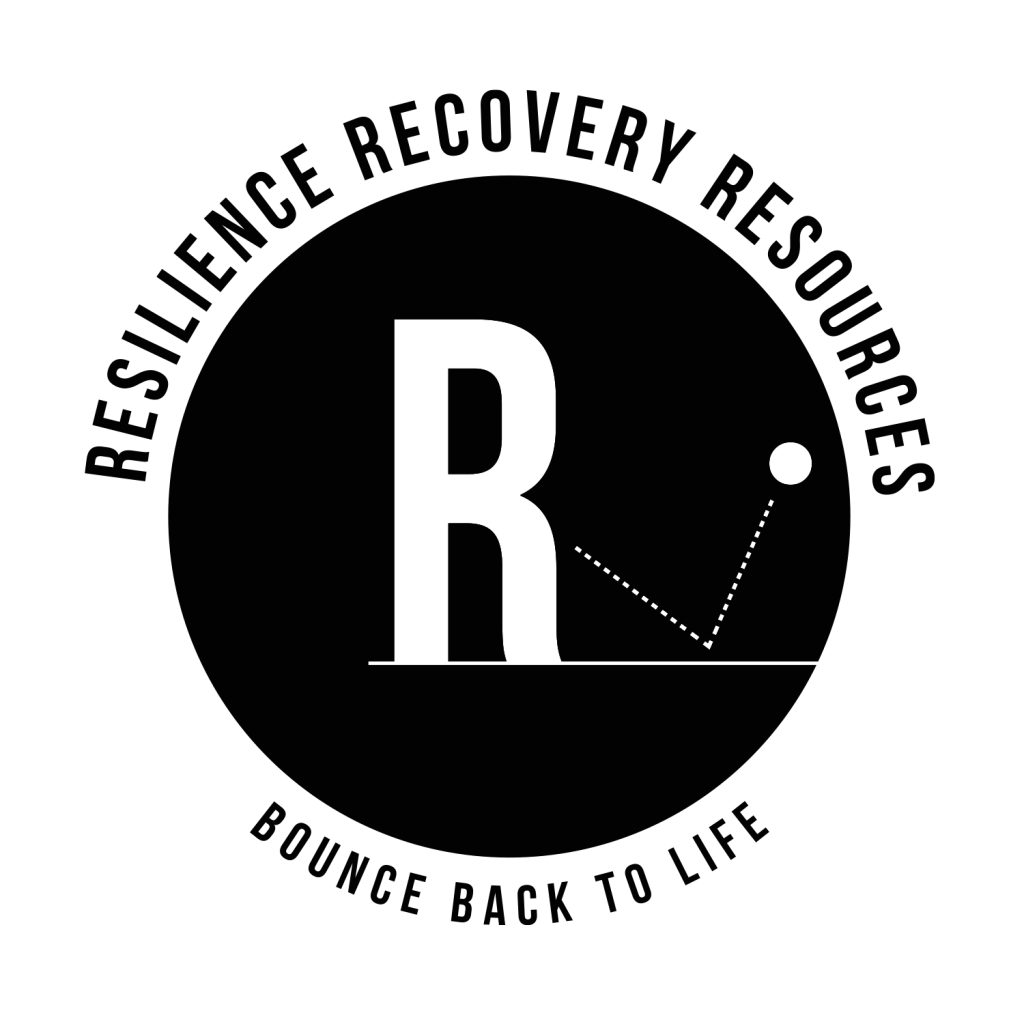Mental health challenges don’t discriminate, yet men often face unique barriers when seeking help. At Resilience Recovery Resources in West Palm Beach, we understand that addressing men’s mental health requires specialized approaches that recognize the distinct ways males experience, express, and cope with psychological challenges.
The statistics are sobering: men are significantly less likely to seek mental health treatment than women, despite facing serious mental health conditions at alarming rates. According to the National Institute of Mental Health (NIMH), approximately 6 million men in the United States experience depression each year, yet male depression often goes undiagnosed and untreated.
The Hidden Crisis: Why Men’s Mental Health Matters
Men face a mental health crisis that often remains invisible. The American Psychological Association reports that traditional masculine norms—such as the expectation to be strong, self-reliant, and emotionally reserved—can prevent men from recognizing mental health symptoms or seeking help when they need it most.
This reluctance to seek support has devastating consequences. Men die by suicide at rates nearly four times higher than women, according to the Centers for Disease Control and Prevention (CDC). Additionally, men are more likely to turn to substance abuse as a coping mechanism for untreated mental health conditions, creating a dangerous cycle of co-occurring disorders that require specialized treatment.
Understanding Mental Health Across Male Age Groups
At Resilience Recovery Resources, we recognize that mental health challenges manifest differently across various life stages. Our specialized programs address the unique needs of males during critical developmental periods.
Adolescent Males (Ages 14-17): Navigating Identity and Pressure
The adolescent years bring unique mental health challenges for young men. During this crucial developmental stage, teenage boys often struggle with:
Identity Formation and Social Pressure: Adolescent males face intense pressure to conform to masculine stereotypes while simultaneously navigating identity formation. This can lead to internalized stress, anxiety, and difficulty expressing emotions in healthy ways.
Academic and Athletic Expectations: Many teenage boys experience overwhelming pressure to excel academically and athletically. When these expectations become unmanageable, it can trigger depression, anxiety disorders, and unhealthy coping mechanisms.
Early Substance Experimentation: Research from the National Institute on Drug Abuse shows that adolescent males are more likely to engage in risky behaviors, including early substance abuse. What may begin as experimentation can quickly escalate into serious addiction issues that require professional intervention.
Technology and Social Media Impact: Today’s adolescent males navigate social media pressures that previous generations never faced. Cyberbullying, unrealistic social comparisons, and excessive screen time can significantly impact mental health and self-esteem.
Young Adult Males (Ages 18-28): Transitioning to Independence
The transition from adolescence to adulthood presents distinct mental health challenges for young men:
Career and Educational Stress: Young adult males often face intense pressure to establish career paths and achieve financial independence. The competitive job market, student loan debt, and economic uncertainty can trigger anxiety and depression.
Relationship and Social Challenges: This age group frequently struggles with romantic relationships, social connections, and maintaining friendships. The pressure to appear successful and self-sufficient can lead to isolation and loneliness.
Substance Use and Mental Health: Young adult males show higher rates of binge drinking and recreational drug use. According to the Substance Abuse and Mental Health Services Administration (SAMHSA), this demographic is particularly vulnerable to developing substance use disorders that often mask underlying mental health conditions.
Identity and Purpose Questions: The search for meaning and purpose can become overwhelming during these formative years. Young adult males may experience existential anxiety, depression, and uncertainty about their future direction.
Breaking Down Barriers: Recognizing Mental Health Symptoms in Males
Men often express mental health symptoms differently than women, which can lead to misdiagnosis or delayed treatment. Understanding these unique presentations is crucial for early intervention:
Depression in Males May Present As:
- Increased irritability and anger
- Risk-taking behaviors
- Physical complaints (headaches, digestive issues)
- Social withdrawal
- Changes in sleep patterns
- Decreased interest in activities
- Substance use as self-medication
Anxiety in Males Often Manifests Through:
- Physical symptoms (muscle tension, fatigue)
- Avoidance behaviors
- Perfectionism and control issues
- Restlessness and difficulty concentrating
- Increased aggression or irritability
Trauma Responses in Males Can Include:
- Emotional numbness
- Hypervigilance
- Difficulty trusting others
- Increased substance use
- Risk-taking behaviors
- Sleep disturbances
Our trauma treatment programs specifically address how males process and respond to traumatic experiences.
The Role of Stigma and Cultural Factors
Cultural expectations around masculinity significantly impact how men approach mental health. Traditional masculine norms often discourage emotional expression and help-seeking behaviors, creating additional barriers to treatment:
“Be Strong” Mentality: The cultural message that men should handle problems independently can prevent them from seeking necessary support. This mentality is particularly harmful when dealing with serious mental health conditions that require professional intervention.
Fear of Appearing Weak: Many men worry that seeking mental health treatment will be perceived as weakness or failure. This fear can delay treatment and worsen symptoms over time.
Limited Emotional Vocabulary: Traditional masculine socialization often limits men’s ability to identify and express emotions, making it difficult to communicate mental health struggles effectively.
Evidence-Based Treatment Approaches for Males
At Resilience Recovery Resources, we utilize evidence-based treatment modalities specifically effective for male clients:
Cognitive Behavioral Therapy (CBT): CBT helps men identify negative thought patterns and develop practical coping strategies. This structured approach often appeals to males who prefer concrete, goal-oriented treatment methods.
Group Therapy for Men: Male-only group therapy sessions provide a safe space for men to share experiences and learn from peers facing similar challenges. These groups help break down isolation and normalize the experience of seeking help.
Adventure and Experiential Therapy: Many men respond well to action-oriented therapeutic approaches that incorporate physical activity and real-world challenges. These methods can be particularly effective for adolescent and young adult males.
Family Therapy: Addressing family dynamics and communication patterns is crucial for long-term recovery, especially for younger males who may return to family environments after treatment.
Specialized Programs at Resilience Recovery Resources
Our West Palm Beach facility offers comprehensive mental health and addiction treatment programs designed specifically for males:
Partial Hospitalization Program (PHP): Our PHP provides intensive daily support while allowing clients to maintain some independence. This program is ideal for males who need structured treatment but can benefit from practicing skills in real-world settings.
Intensive Outpatient Program (IOP): The IOP offers flexible scheduling that allows young adult males to continue work or educational commitments while receiving comprehensive mental health treatment.
Sober Living Support: Our sober living programs provide a supportive environment where young men can practice recovery skills while building independence and life skills.
Creating a Supportive Environment for Male Mental Health
Recovery from mental health challenges requires a supportive environment that addresses the unique needs of male clients:
Male-Focused Programming: Our programs incorporate activities and therapeutic approaches that resonate with male clients, including sports therapy, leadership development, and skills-based learning.
Peer Support Networks: Connecting with other males who have faced similar challenges provides invaluable support and reduces feelings of isolation. Our alumni program maintains these crucial connections long after treatment completion.
Professional Male Role Models: Our treatment team includes male counselors and staff who serve as positive role models and demonstrate that seeking help is a sign of strength, not weakness.
The Importance of Early Intervention
Early identification and treatment of mental health issues in males can prevent more serious complications later in life. Warning signs that may indicate the need for professional help include:
- Significant changes in mood or behavior
- Declining academic or work performance
- Increased substance use
- Social isolation or withdrawal
- Physical complaints without medical cause
- Expressions of hopelessness or despair
- Risky or self-destructive behaviors
Supporting Male Mental Health: What Families Can Do
Families play a crucial role in supporting male mental health recovery:
Normalize Mental Health Conversations: Creating an environment where mental health discussions are normal and accepted helps reduce stigma and encourages help-seeking behaviors.
Recognize Gender Differences: Understanding that males may express mental health symptoms differently can lead to earlier recognition and intervention.
Encourage Professional Help: Supporting the decision to seek professional treatment and helping to locate appropriate resources is invaluable for recovery success.
Maintain Ongoing Support: Recovery is an ongoing process that benefits from consistent family support and understanding.
Moving Forward: A Message of Hope
Mental health challenges are treatable, and recovery is possible. At Resilience Recovery Resources, we’ve witnessed countless young men overcome significant mental health and addiction challenges to build fulfilling, successful lives.
Breaking the silence around men’s mental health requires courage, but it’s a crucial step toward healing. Whether you’re a teenage boy struggling with anxiety, a young adult battling depression, or a family member concerned about a loved one, professional help is available.
Our comprehensive approach addresses the whole person—not just the symptoms—and provides the tools necessary for long-term recovery and mental wellness. Through evidence-based treatment, peer support, and specialized male-focused programming, we help our clients develop the skills and confidence needed to thrive.
Take the First Step Today
If you or someone you care about is struggling with mental health challenges, don’t wait to seek help. Early intervention can make a significant difference in treatment outcomes and long-term recovery success.
Contact Resilience Recovery Resources today at 561-566-5480 to learn more about our specialized programs for adolescent and young adult males. Our admissions team is available to answer questions, conduct confidential assessments, and help determine the most appropriate level of care.
Recovery starts with a single step—and that step begins with reaching out for support. At Resilience Recovery Resources, we’re here to walk alongside you on the journey toward mental health and wellness.
Sources:
- National Institute of Mental Health. (2023). Men and Mental Health. https://www.nimh.nih.gov/health/topics/men-and-mental-health
- Centers for Disease Control and Prevention. (2023). Suicide Prevention. https://www.cdc.gov/suicide/prevention/index.html
- American Psychological Association. (2023). Men and Mental Health Stigma. https://www.apa.org/topics/men-masculinity
- Substance Abuse and Mental Health Services Administration. (2023). Mental Health and Substance Use Disorders. https://www.samhsa.gov/mental-health
- National Institute on Drug Abuse. (2023). Principles of Adolescent Substance Use Disorder Treatment. https://nida.nih.gov/publications/principles-adolescent-substance-use-disorder-treatment-research-based-guide



